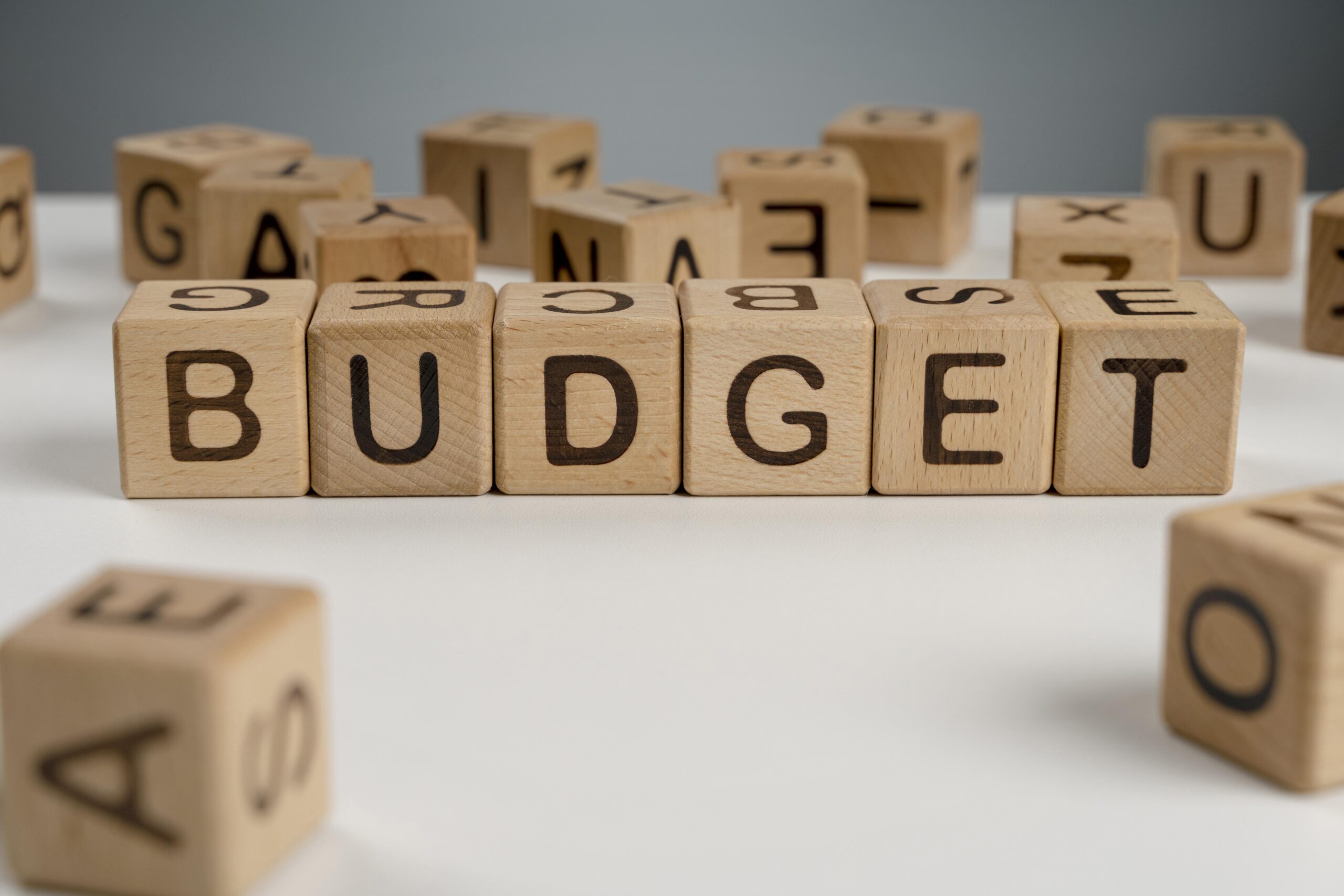
Creating a budget that suits your expenses and income is a crucial skill, in an era where responsible money management and financial stability are more important than ever. Budgeting is an essential financial tool that can help you work towards your financial goals, take control of your money and reduce financial stress. However, not all budgets are created equal.
A well-crafted budget can not only pave the way for achieving your financial goals but also help you maintain control over your finances. It’s important to tailor a budget to your specific needs and circumstances, in order to truly make it work for you in 2023.
In this in-depth guide, we will discuss the steps to make a budget that works for you in 2023. We’ll cover everything from utilizing budgeting tools to setting realistic goals, turning budgeting into a rewarding experience and handling unexpected expenses. We’ll also explore how to create a budget that suits your expenses and income, pays off debts, and so much more.
Let’s dive in!
- Merits of Having a Budget
- How to Make a Budget That Suits Your Expenses and Income
- Making Use of Budgeting Tools and Apps
- Making Feasible and Achievable Budgeting Goals
- Coping with Emergencies and Unexpected Expenses
- Utilizing Budget to Improve Your Credit Score and Pay Off Debts
- Making Plans for Your Future and Actualizing Your Financial Dreams
- Ensuring Budgeting is Rewarding and Fun
- Involving Your Friends and Family
- Conquering Common Budgeting Mistakes and Challenges
- Evaluating and Reviewing Your Budget Regularly
- Leveraging Online Guides and Resources
- Learning from Budgeters Who are Successful
- Building a Positive Mindset For Budgeting
Merits of Having a Budget
Let’s understand why having a budget is so crucial, before we delve into the nitty-gritty of budget creation:
1. Enhanced Financial Situation
A clear overview of your financial situation is what you get with a well-structured budget. It shows where your money is going and where it is coming from. The first step towards financial improvement is this awareness.
2. Minimized Stress
Financial uncertainty is known to be incredibly stressful. You can reduce the anxiety associated with money matters and confidently manage your finances, with a budget in place.
3. Goal Actualization
A budget can help you achieve your goals faster, irrespective of whether it’s retiring comfortably, saving for a dream vacation or buying a home. It serves as roadmaps for achieving financial goals.
4. Accountability
Budgeting promotes responsible financial behavior and forces you to think twice about unnecessary expenses. It keeps you accountable for your spending.
5. Managed Debt
A well-structured budget helps you improve your credit score over time and reduces your debt load, allowing you to allocate funds for debt repayment.
6. Preparedness For Emergency
Budgeting provides you with a financial safety net when you need it most, setting aside funds for emergencies and unexpected expenses.
7. Planned Future
Budgeting is a roadmap for securing your financial future. You can plan for long-term financial goals like your children’s education or retirement, with a good budget.
How to Make a Budget That Suits Your Expenses and Income
1. Collect Financial Information
Start by calculating your net monthly income. Gather all your financial information. Include all sources of income, your salary, rental income and freelance earnings. Next, outline your monthly expenses, such as transportation, utilities, groceries, insurance, rent or mortgage and entertainment.
2. Classify Your Expenses
Categorization helps you allocate your resources effectively. Categorize your expenses into variables (fluctuating costs like shopping or dining out) and fixed (consistent monthly bills).
3. Set Feasible Goals
Whether it’s investing for the future, building an emergency fund or paying off debts, ensure that your goals are specific, measurable, achievable, relevant, and time-bound (SMART). Define your financial goals.
4. Make a Monthly Budget
Ensure your total expenses do not exceed your income, while allocating specific amounts to each expense category. Use a budgeting app or spreadsheet to create a monthly budget.
5. Review and Adjust
Your budget should adapt to changes in expenses or income because life is dynamic. Regularly adjust your budget and monitor your spending as needed.

Making Use of Budgeting Tools and Apps
Use tools and budgeting apps to manage and track your money. Make the most of Technology. You can automate this process, by using popular apps like Personal Capital, Mint and YNAB (You Need a Budget), making it easier to stick to your budget.
Tools and budgeting apps can provide real-time insights into your financial health and streamline the budgeting process. Below is a breakdown of how to leverage them effectively:
1. Opt For the Right App
The budgeting apps available include Personal Capital, Mint and YNAB (You Need A Budget). Research and choose a budgeting app that aligns with your preferences and needs.
2. Synchronize Your Accounts
Automation simplifies expense tracking. Connect your investment accounts, bank accounts and credit cards to the app.
3. Create Alerts
A good number of apps allow you to set up alerts for when you approach budget limits or for overspending. These notifications help you stay on course.
4. Utilize Budgeting Features
Budgeting features within the app can assist in generating financial reports, categorizing expenses and creating spending limits. Explore these features within the app.
5. Evaluate and Analyze
Analyze your spending patterns and regularly review your app’s reports. This will help you highlight areas where you can save more by cutting back.
Making Feasible and Achievable Budgeting Goals
Set realistic financial goals that align with your current circumstances, when creating your budget. Break down your goals into achievable milestones that are smaller. For example, set monthly savings targets, if you aim to save $10,000 this year.
An integral part of budgeting is setting goals. Consider the following tips to ensure your goals are attainable:
1. Ensure Your Goals are Prioritized
To avoid spreading your resources too thin, focus on one or two primary objectives at a time. Rank your financial goals according to level of importance.
2. Divide Your Goals into Smaller Steps
Break your goals into smaller, manageable steps with specific deadlines, as large goals can be overwhelming. This makes progress more feasible.
3. Plan for Contingencies
To handle unforeseen costs, allocate a portion of your budget to an emergency fund. Unexpected expenses can derail your plans, as life is full of surprises.
4. Be Motivated
In achieving your goals, motivation plays a significant role. Whether it’s using incentives, visualizing your success or seeking support from family and friends, find ways to stay inspired.
Coping with Emergencies and Unexpected Expenses
Integrate an emergency fund into your budget. Setting aside at least three to six months’ worth of living expenses should be your aim. When unexpected financial challenges arise, this cushion will provide peace of mind.
Unexpected expenses can arise, irrespective of how you plan. Here’s how to handle them within your budget:
1. Keep Funds for Emergency
Keep up with an emergency fund that has at least three to six months’ worth of living expenses. This cushion helps you cater for unexpected costs without hampering your budget.
2. Budget Adjustment
Your budget should be flexible seeing as life is unpredictable. When circumstances change, be prepared to make adjustments to it. Your budget should adapt to changes, whether it’s a change in living arrangements, a pay raise or unexpected medical expenses.
Adjust your budget temporarily, when faced with unforeseen expenses. To accommodate the unexpected costs, reduce spending in other categories .
3. Stay Away From Debt
Avoid the temptation to rely on loans or credit cards to cover unexpected expenses as this can lead to a cycle of debt. Instead, find alternative solutions or tap into your emergency fund.
Utilizing Budget to Improve Your Credit Score and Pay Off Debts
Set aside a portion of your budget for repayment of debts. High-interest debts should be your first focus. Over time, your credit score will be positively impacted by reducing your debt.
Your budget can be a powerful tool for credit score improvement and debt repayment, if you have outstanding debts.
Here’s how:
1. Make High-Interest Debt a Priority
To pay off high-interest debts first, allocate extra funds in your budget. The amount you pay in interest over time is reduced by this.
2. Avalanche or Snowball Method
Opt for a debt repayment strategy that works for you: the debt avalanche method (paying off the highest-interest debt first to save on interest costs) or the debt snowball method (paying off the smallest debts first for quick wins).
3. Keep an Eye on Your Credit Score
Check your credit score regularly. You can save money by having a higher score because it can lead to lower interest rates and better loan terms.
4. Stay Away From New Debt
Avoid taking on new debt, while paying off existing debts. Focus on redirecting any extra funds towards debt repayment and living within your means.

Making Plans for Your Future and Actualizing Your Financial Dreams
To create a roadmap for your financial future, use your budget . Set aside funds for other long-term goals, retirement accounts and investments. Your financial prospects will be better, the earlier you start planning.
Your budget is a tool for realizing your long-term financial dreams, it is not just about managing day-to-day expenses:
1. Planning for Retirement
Designate a portion of your budget for retirement savings, such as IRA or a 401(k). Your retirement nest egg can be grown significantly by compound interest.
2. Define Your Investment Goals
Consider investing for long-term goals like achieving financial independence, buying a home or funding your child’s education. In order to get personalized investment strategies, Consult a financial advisor.
3. Automate Your Savings
To ensure you consistently contribute to your future goals, set up automatic transfers to investment and savings accounts .
4. Evaluate and Adjust
Regularly make adjustments when needed, after reviewing your progress towards long-term goals. Update your budget to reflect new priorities, if your circumstances change.
Ensuring Budgeting is Rewarding and Fun
Create rewards and incentives for achieving your budgeting milestones, in order to stay motivated. Give yourself a treat when you reach specific debt reduction targets or savings goals. You stay on track, by making budgeting enjoyable. It doesn’t have to be a tedious or dull task.
Make budgeting motivating and enjoyable with these strategies:
1. Create a Rewards System
For every specific budgeting milestone you achieve, create a rewards system. When you pay off a debt or hit a savings goal, treat yourself to a small indulgence.
2. Take on Financial Challenges
To stay competitive and engaged, participate in financial contests or challenges. These challenges can also pave the way for you to learn new budgeting techniques.
3. Celebrate Your Progress
Irrespective of how small, celebrate your financial successes. You remain positive and motivated, when you acknowledge your achievements.
Involving Your Friends and Family
Your family and friends should be part of your budgeting journey. They can hold you accountable, share tips and advice and provide support. Your relationships can be strengthened by collaborating on financial goals.
Encourage your family and friends to join you in your budgeting journey as it doesn’t have to be a solo endeavor.
Here’s How:
1. Hold Family Budget Meetings
Family budget meetings should be held to ensure everyone is on the same page. Everyone should also share ideas and discuss financial goals.
2. Have Accountability Partners
Among your friends or colleagues, find an accountability partner or a budgeting buddy. To stay motivated together, share challenges, successes and tips.
3. Assemble a Supportive Network
Assemble a supportive network of persons who share your financial goals. Also, to connect with like-minded people, join online communities or attend financial workshops.
Conquering Common Budgeting Mistakes and Challenges
You may encounter challenges along the way as budgeting isn’t always easy. Neglecting to save, impulse buying and overspending, are common issues you will encounter. Practice mindfulness in your spending habits and discipline, to overcome these challenges. Budgeting can really be challenging as mistakes are common.
Here’s how to overcome some common obstacles:
1. Avoid Overspending
Adjust your budget to allocate more funds to those areas that you consistently overspend in. Alternatively, in order to balance your budget, you can also look for ways to reduce spending in other categories.
2. Maintain Discipline
It is crucial for budget success that you maintain discipline. Use strategies like setting up automatic transfers to savings accounts or the envelope system (allocating cash to specific categories).
3. Never Ignore Small Expenses
Small daily expenses can amount to a lot. Never overlook them in your budget. Incorporate a category for discretionary or miscellaneous spending.
4. Consistent Tracking
Track your expenses and regularly update your budget. To review your financial status, set aside time each week or month .

Evaluating and Reviewing Your Budget Regularly
Regular review and adjustment is required for your budget as it is a dynamic tool. It requires ongoing attention. Allocate time each month for evaluating progress toward your goals, your income and spending. This information should be used by you to make improvements to your budget.
Here’s how to ensure its effectiveness:
1. Monthly
To make adjustments as needed and assess your progress, Conduct monthly budget reviews. Compare your budgeted amounts to your actual spending.
2. Quarterly
Evaluate your overall financial health and long-term goals, every three months. Are you on course to actualize your objectives?
3. Annually
Conduct a comprehensive review of your financial situation and budget, annually. For a thorough assessment, consider consulting a financial advisor.
Leveraging Online Guides and Resources
A treasure trove of budgeting guides and resources is available on the internet. For inspiration and advice, explore financial websites, forums and blogs. You are provided with valuable insights if you learn from successful budgeters.
To enhance your budgeting skills, make the most of these digital tools:
1. Budgeting Calculators
To help you analyze and plan your budget, numerous websites offer free budgeting calculators.
2. Educational Podcasts and Videos
Listen to personal finance podcasts for valuable tips and insights or watch budgeting tutorials on platforms like YouTube.
3. Budgeting Forums and Blogs
Personal finance forums and blogs where individuals share their strategies, successes and budgeting journeys, are channels you should explore.
Learning from Budgeters Who are Successful
It can be educational and inspiring to learn from others who have successfully managed their finances :
1. Read Personal Stories
Read accounts and personal stories of people who have achieved financial independence through smart financial choices and budgeting.
2. Study Biographies and Books
Read titles like “Your Money or Your Life” or “The Millionaire Next Door”. These are one of the many books and biographies on financial success you can read.
Building a Positive Mindset For Budgeting
The key to budgeting success is a positive mindset:
1. Concentrate on Possibilities
Do not view budgeting as a restriction on your present, instead, view it as a tool that opens up possibilities for your future.
2. Accept Challenges
Budgeting challenges should be seen as an opportunity to grow and learn. It can be incredibly empowering to overcome financial obstacles.
3. Celebrate Your Wins and Progress
No matter how small they may seem, always celebrate your budgeting wins. Each stride forward takes you closer to financial freedom and stability.

Conclusion
Adaptability to changing circumstances, ongoing monitoring and careful planning is what is required to create a budget that works for you in 2023.
You can tailor your budget to your financial goals, expenses and unique income, by following the steps outlined in this guide.
Each step you take brings you closer to realizing your dreams and achieving financial security. Remember budgeting is not a destination. It’s a journey!
Safe Travels!
Leave a Reply